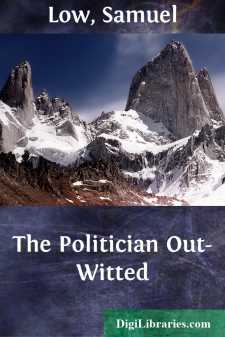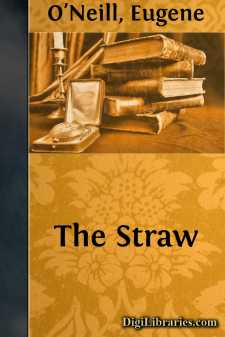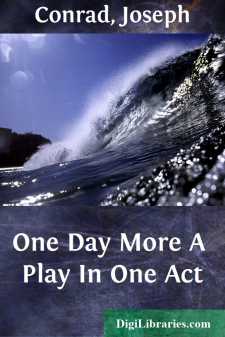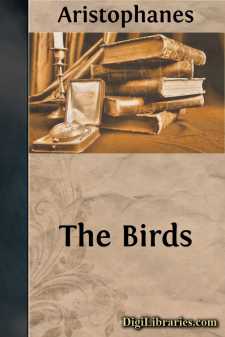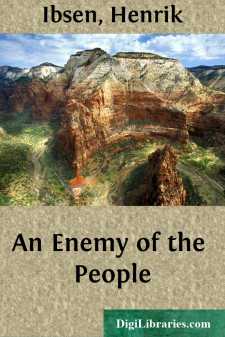Drama Books
Sort by:
ACT I A large old-fashioned room in Matthew Beeler's farm-house, near a small town in the Middle West. The room is used for dining and for general living purposes. It suggests, in architecture and furnishings, a past of considerable prosperity, which has now given place to more humble living. The house is, in fact, the ancestral home of Mr. Beeler's wife, Mary, born Beardsley, a family of the...
more...
by:
Samuel Low
Very little is known about the author of "The Politician Out-witted," a play which I have selected as representative of the efforts of the American drama, as early as 1789, to reflect the political spirit of the time. Assiduous search on the part of the present editor has failed to bring to light any information from any of the historical societies regarding Mr. Low, except that he was born on...
more...
by:
Eugene O'Neill
Act One Act One: Scene One The kitchen of the Carmody home on the outskirts of a manufacturing town in Connecticut. On the left, forward, the sink. Farther back, two windows looking out on the yard. In the left corner, rear, the icebox. Immediately to the right of it, in the rear wall, a window opening on the side porch. To the right of this, a china cupboard, and a door leading into the hall where the...
more...
by:
Joseph Conrad
ONE DAY MORE SCENE I. CURTAIN RISES DISCLOSING CARVIL and Bessie moving away from sea-wall. Bessie about twenty-five. Black dress; black straw hat. A lot of mahogany-coloured hair loosely done up. Pale face. Full figure. Very quiet. Carvil, blind, unwieldy. Reddish whiskers; slow, deep voice produced without effort. Immovable, big face. Carvil (Hanging heavily on Bessie's arm). Careful! Go slow!...
more...
by:
Bernard Shaw
ACT I At the most wretched hour between a black night and a wintry morning in the year 1777, Mrs. Dudgeon, of New Hampshire, is sitting up in the kitchen and general dwelling room of her farm house on the outskirts of the town of Websterbridge. She is not a prepossessing woman. No woman looks her best after sitting up all night; and Mrs. Dudgeon's face, even at its best, is grimly trenched by the...
more...
ACT I. SCENE: [Country public-house or shebeen, very rough and untidy. There is a sort of counter on the right with shelves, holding many bottles and jugs, just seen above it. Empty barrels stand near the counter. At back, a little to left of counter, there is a door into the open air, then, more to the left, there is a settle with shelves above it, with more jugs, and a table beneath a window. At the...
more...
HOW TO BE A GOOD RADIO ACTOR The play in this book has actually been produced on the radio. Possibly you have listened to this one when you tuned in at home. The persons whose voices you heard as you listened, looked just as they did when they left their homes to go to the studio, although they were taking the parts of men and women who lived long ago and who wore costumes very different from the ones...
more...
by:
Aristophanes
INTRODUCTION 'The Birds' differs markedly from all the other Comedies of Aristophanes which have come down to us in subject and general conception. It is just an extravaganza pure and simple—a graceful, whimsical theme chosen expressly for the sake of the opportunities it afforded of bright, amusing dialogue, pleasing lyrical interludes, and charming displays of brilliant stage effects and...
more...
by:
Henrik Ibsen
ACT I (SCENE.—DR. STOCKMANN'S sitting-room. It is evening. The room is plainly but neatly appointed and furnished. In the right-hand wall are two doors; the farther leads out to the hall, the nearer to the doctor's study. In the left-hand wall, opposite the door leading to the hall, is a door leading to the other rooms occupied by the family. In the middle of the same wall stands the stove,...
more...
ACT V SCENE I. The Forest of Arden [Enter TOUCHSTONE and AUDREY.]TOUCHSTONEWe shall find a time, Audrey; patience, gentle Audrey. AUDREYFaith, the priest was good enough, for all the old gentleman's saying. TOUCHSTONEA most wicked Sir Oliver, Audrey, a most vile Martext. But, Audrey, there is a youth here in the forest lays claim to you. AUDREYAy, I know who 'tis: he hath no interest...
more...



